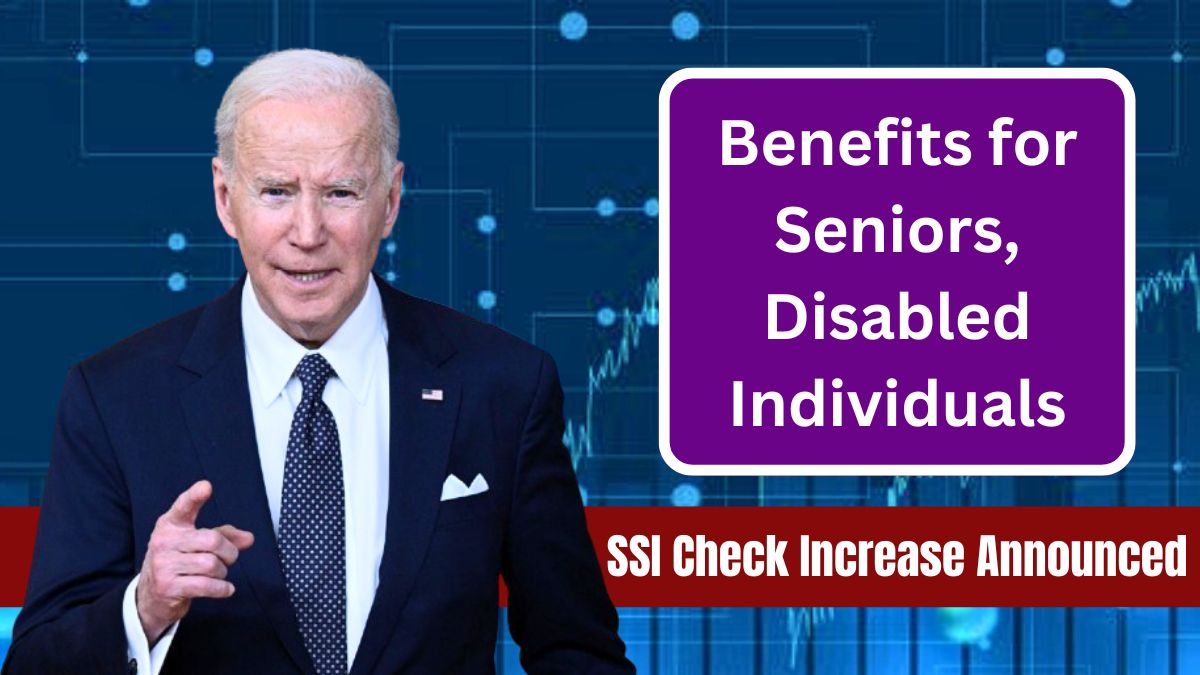The Social Security Administration (SSA) recently announced a significant increase in Supplemental Security Income (SSI) payments, benefiting thousands of Americans over the age of 65, individuals with disabilities, and children who meet specific financial criteria. For over five decades, the SSI program has provided critical financial aid to those struggling to meet basic living expenses. However, even with these payments, millions of people remain unable to access these benefits due to stringent eligibility requirements.
What is SSI?
Supplemental Security Income (SSI) is a federal program that provides monthly financial aid to seniors, individuals with disabilities, and minors from low-income families. The goal of SSI is to assist individuals who cannot meet their basic needs because of limited income and assets. For many, it has been a lifeline, offering essential support for rent, utilities, and other necessities. However, strict eligibility requirements have limited access for others who are also in need.
- Income Limits – SSI is only available to individuals with very low income.
- Asset Limits – A single person can have no more than $2,000 in assets, while couples are capped at $3,000.
These financial limits have not been adjusted since 1989, making it difficult for many to save or prepare for future expenses while relying on SSI. Despite these limits, the SSA has made recent changes aimed at improving the program and increasing payments.
SSI Payment Increase
In response to the rising cost of living and financial difficulties facing many beneficiaries, the SSA has increased SSI payments for thousands of people. The increase comes despite ongoing Congressional restrictions on allowable assets for eligibility. While the asset limits remain unchanged, the SSA’s decision to boost payments provides some relief to those already struggling.
| Eligibility Criteria | Current SSI Asset Limits | Proposed 2003 Adjustments |
|---|---|---|
| Single Individuals | $2,000 | $3,000 |
| Couples | $3,000 | $4,500 |
In the table above, the asset limits for SSI eligibility are shown alongside proposed adjustments from a 2003 Congressional committee that were never implemented. These outdated asset limits have been a major obstacle for many potential beneficiaries.
Administrative Improvements
Although only Congress can modify the SSI asset limits, the SSA has introduced several administrative improvements to make it easier for people to access benefits. In 2024, the following three major changes were implemented:
1. Food Assistance Consideration
Previously, any food assistance provided by family or friends was considered when determining SSI eligibility under the “in-kind support and maintenance” (ISM) rules. However, the SSA has now removed this consideration, allowing more individuals to qualify for SSI. This change is expected to increase monthly payments by about $131 for over 90,000 beneficiaries.
2. Rental Subsidy Exception
The rental subsidy exception, which was previously limited to only seven states, has now been expanded nationwide. This policy change will make more people eligible for SSI and raise payments by approximately $132 for around 41,000 individuals.
3. Public Assistance Household
The SSA has also revised the definition of a public assistance household to include those receiving Supplemental Nutrition Assistance Program (SNAP) benefits. Additionally, the requirement that all household members receive public assistance to qualify as a public assistance household has been removed. This will increase payments for around 277,000 people and reduce the reporting obligations for many beneficiaries.
| Improvement | Expected Increase in Monthly Payments | Number of Beneficiaries Impacted |
|---|---|---|
| Removal of Food Assistance Consideration | $131 | 90,000+ |
| Expansion of Rental Subsidy Exception | $132 | 41,000+ |
| Broadened Definition of Public Assistance | Variable | 277,000+ |
Future of SSI
The recent administrative improvements represent a positive step forward for SSI beneficiaries. These changes will increase payments and reduce bureaucratic obstacles for many people. However, there is still a need for Congress to review the asset limits and outdated regulations that restrict access to the program.
As economic conditions evolve, the current asset limits—unchanged since 1989—no longer reflect the financial realities of modern life. While these administrative changes are a step in the right direction, updating the asset thresholds and adjusting them for inflation could allow more Americans to qualify for SSI and provide them with better financial security.
For now, SSI recipients can look forward to these improvements, but there remains significant advocacy for Congress to take further action to update the program’s eligibility rules and ensure the program is aligned with current economic needs.
FAQs
What is the current asset limit for SSI eligibility?
A single person can have up to $2,000 in assets; couples are limited to $3,000.
How much will SSI payments increase by in 2024?
Monthly payments will increase by approximately $131–$132 for eligible beneficiaries.
What changes has the SSA made to improve SSI?
The SSA removed food assistance consideration, expanded rental subsidies nationwide, and broadened the definition of public assistance households.
Can Congress change SSI asset limits?
Yes, only Congress has the authority to change asset limits, which have not been adjusted since 1989.
What is the impact of these changes on SSI beneficiaries?
Around 277,000 people are expected to see increased SSI payments and reduced reporting requirements.











